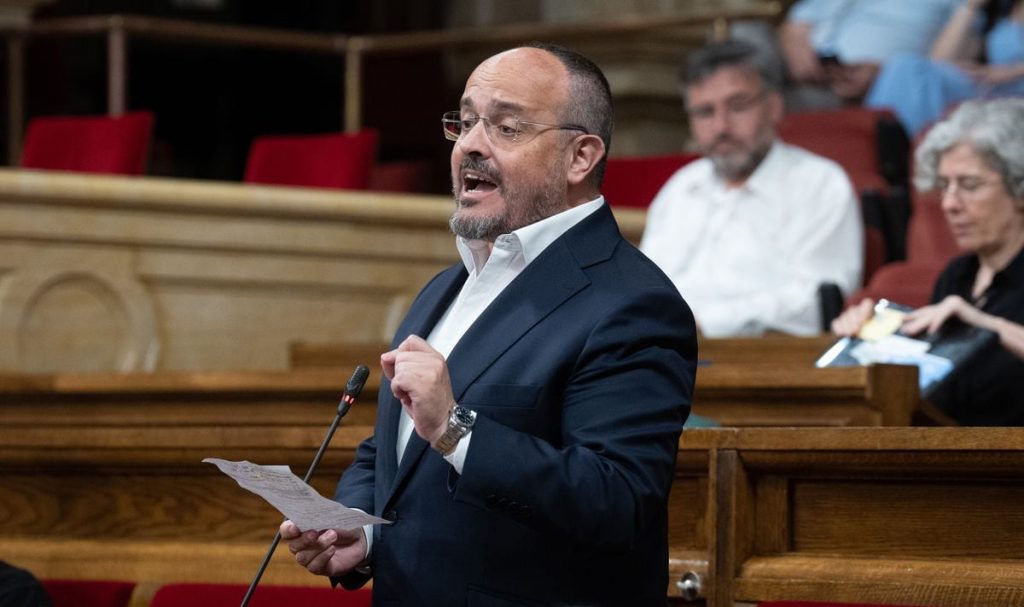In 2011, Alejandro Fernández became viral for his version of a Lady Gaga song during his campaign for mayor of Tarragona, Spain. Despite facing backlash from Sony Music for plagiarism, Fernández’s boldness garnered attention and set him apart in Catalan politics. His recent appointment as the PP candidate for the May 12 elections solidifies his position as a unique and daring politician within the party. Despite opposition from the national leadership, Fernández’s popularity among the party base has grown, highlighting the potential for change within the PP in Catalonia.
Known for his witty remarks and sharp rhetoric in Parliament, Fernández has faced criticism from higher-ranking PP members for his populist approach. However, his commitment to presenting a distinct vision for the PP in Catalonia, separate from both CiU and Junts, has resonated with supporters. With a background in political science and a strong connection to his Asturian roots, Fernández’s career has been marked by challenges and bold decisions that have set him apart within the party. His refusal to negotiate with Junts for government positions, along with his calls for a unique Catalan project within the PP, have sparked debate and controversy among party members.
Despite facing setbacks in the 2021 elections, Fernández’s strategic decisions and political acumen have helped the PP make significant gains in subsequent years. His refusal to seek a national role and commitment to combating the pro-independence movement in Catalonia have solidified his position as a key figure within the party. With a family life that includes a wife and three daughters, his passion for FC Barcelona, love of music, and sharp sense of humor endear him to supporters and colleagues alike. As he prepares to lead the PP in Catalonia into the upcoming elections, Fernández remains a divisive yet influential figure within the party.
As he navigates the complexities of Catalan politics and works to position the PP as a viable alternative to other parties, including the socialists and pro-independence groups, Fernández faces both internal and external challenges. His unapologetic stance on issues related to Catalan identity and Spanish unity has drawn both praise and criticism, highlighting the complexities of navigating the political landscape in the region. With the support of grassroots activists, party members, and even high-profile figures like Esperanza Aguirre, Fernández continues to shape the future of the PP in Catalonia and beyond.
While some within the party acknowledge Fernández’s strengths as a candidate, concerns about his leadership abilities persist. The expectation that he would serve as both candidate and president of the PP in Catalonia raises questions about his capacity to effectively lead the party. Despite these doubts, Fernández’s role in revitalizing the PP’s presence in Catalonia and his ability to connect with voters suggest that he may have a transformative impact on the party’s future direction. With the upcoming elections on the horizon, all eyes are on Fernández as he seeks to solidify his position and set the PP on a path to success in Catalonia and beyond.














